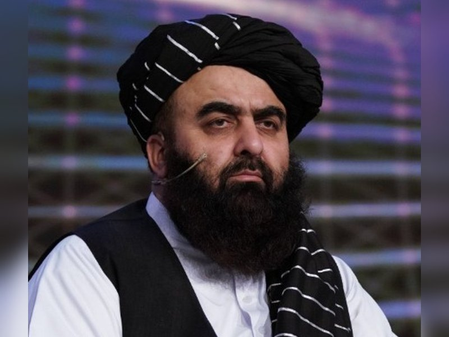
New Delhi: The newfound bonhomie between India’s Modi regime and the Islamic Emirate of Afghanistan, ruled by the Taliban, has come after four years of severing ties when the dreaded fundamentalists came to power following a bloody war in 2021. Naturally, it has not only raised several eyebrows across the world as Russia remains the only country to grant the Taliban government diplomatic recognition.
Normalising relations with the Taliban-run government presents India with a mix of strategic opportunities and risks that can impact its geopolitical standing and domestic landscape. In the short term, India can reclaim some strategic space lost after the 2021 Taliban takeover by reopening its embassy and re-engaging in Afghan development, humanitarian aid, and infrastructure projects. The visiting foreign minister of the Afghan Emirate, Amir Khan Muttaqi, has already offered New Delhi an opportunity to engage in the exploration and mining of rare minerals and invest in infrastructure projects.
Deteriorating relations between the Taliban and Pakistan have also created new opportunities for India to shift the regional balance and curb Islamabad’s influence in Kabul, offering room for increased trade, direct outreach, and regional connectivity.
The engagement, short of formal recognition, also enables India to maintain lines of communication for intelligence and security coordination and can help a great deal in monitoring and responding to cross-border terrorism or anti-India activities emanating from across the border.
On the global stage, India’s gradual engagement is expected to align it more closely with powers like Russia, Iran, and China, which maintain diplomatic missions with Afghanistan. While cautious diplomacy may help avoid alienating Western allies and pro-democracy constituencies, India’s credibility with key partners who prioritize human rights is in question and can impact its global image as a proponent of democratic values.
The short-term domestic implications of improved ties may allow India businesses safer operations, which is vital for India’s sizable development investments. On the flip side, it gives opposition parties and civil society a readymade handle to criticize the Modi-led BJP government for engaging with a fundamentalist regime, which in December 1999 had facilitated the escape of Masood Azhar, Mushtaq Ahmed Zargar, and Ahmed Omar Saeed Sheikh in exchange for the IC-814 hostages and is infamous for suppressing women’s and minority rights.
In terms of long-term geopolitical implications, India risks legitimizing and potentially prolonging the regime, as money provided for rebuilding Afghanistan may be used for Islamist radicalism. There is no sure-shot method to know what is going to be the future trajectory of Taliban led Afghanistan.
Another area of concern for the Indian security apparatus is to go slowly and very cautiously in issuing visas for people-to-people contact, students, patients, and businessmen.
Moreover, India will have to be constantly on the watch, as any increased engagement with Afghanistan can upset other powers that have interests in the region. Taliban’s desire to diversify partners may also limit India’s influence and impact its investments. The ultimate question that will remain open for a long time is whether India will be able to digest the bullet it has bitten.
( The writer is a Delhi-based senior journalist, and the views expressed in this article are solely his own.)
India News Stream



 by Manan Kumar
by Manan Kumar
















